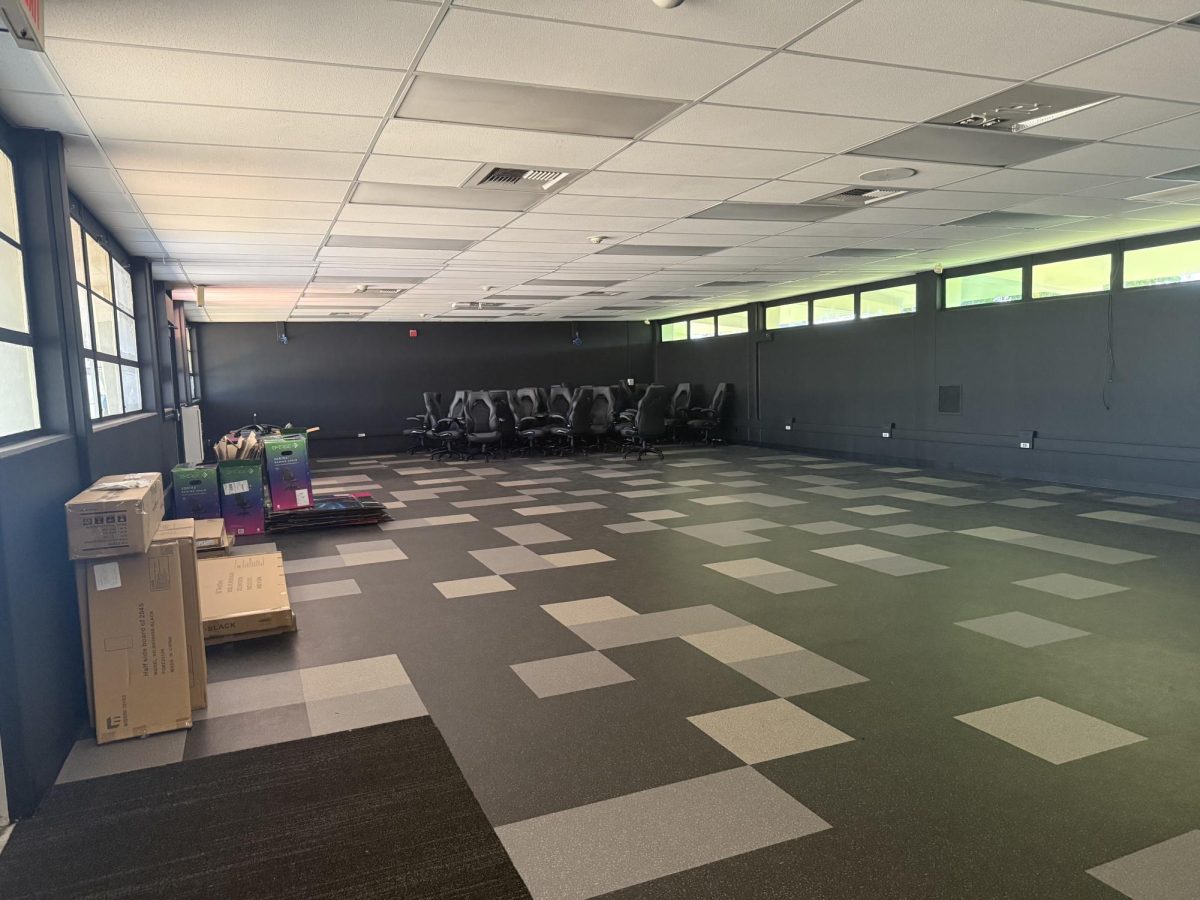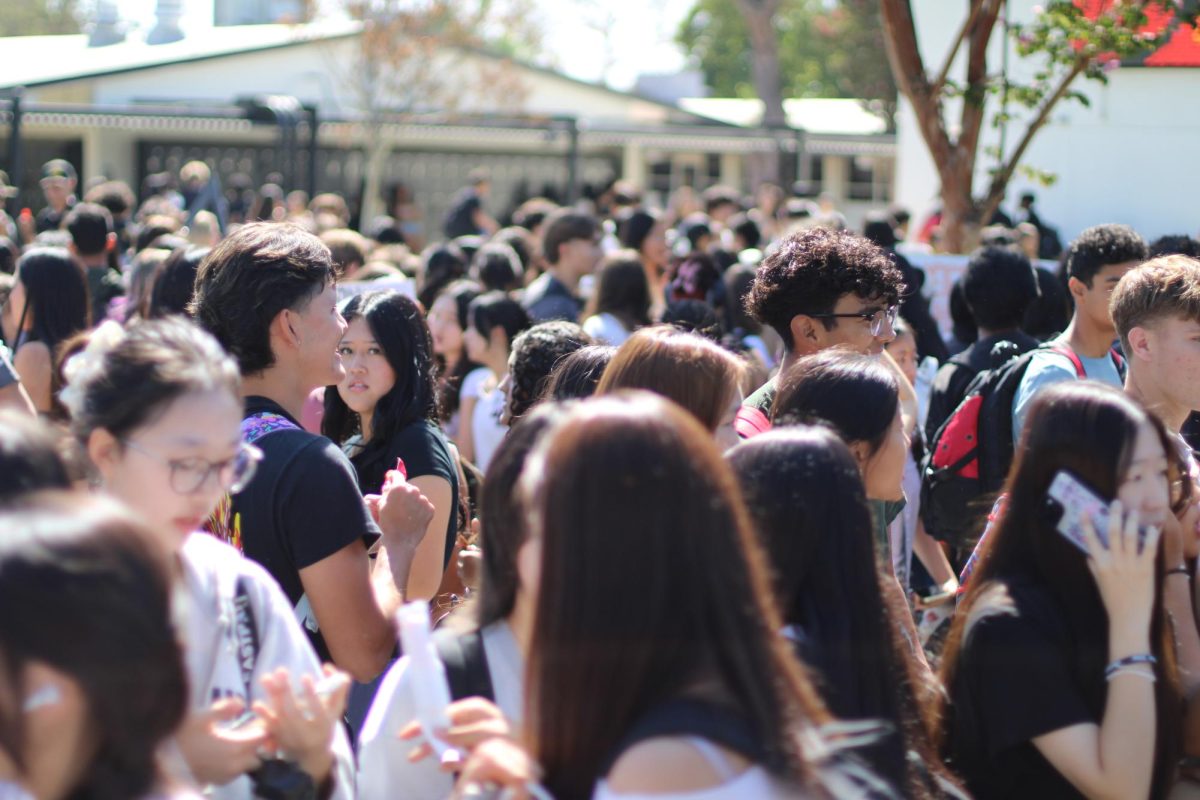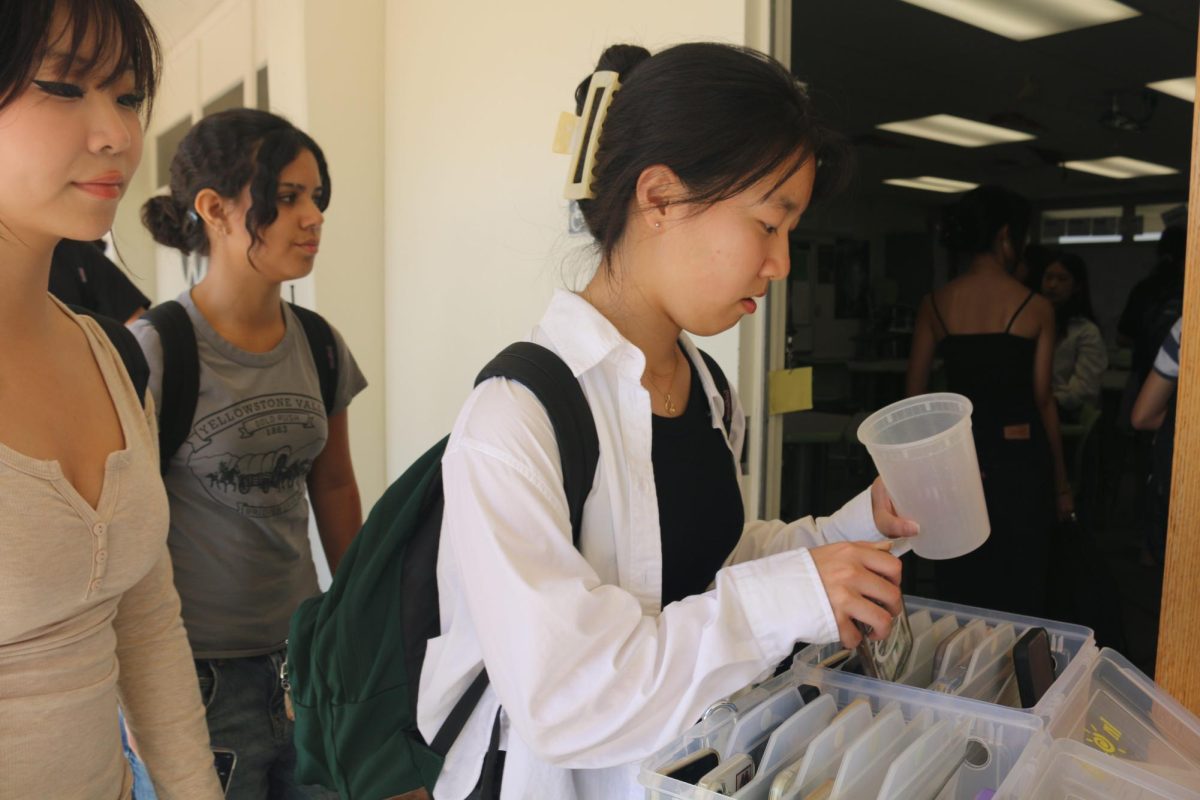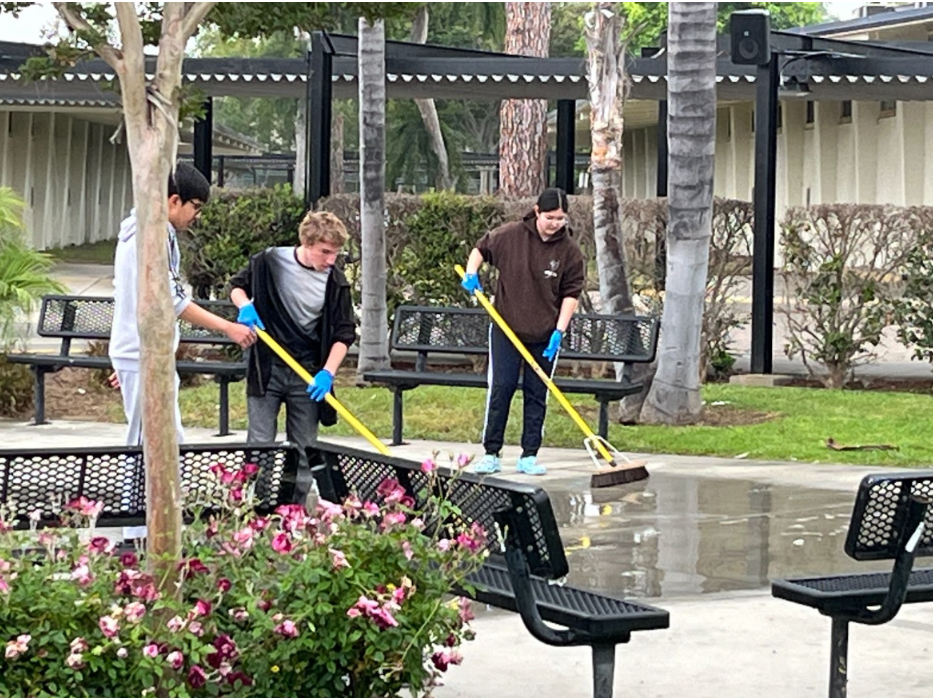For the first time in two years, students in the International Baccalaureate [IB] program will be required to take in-person exams on campus to determine their IB diploma status.
Even though Omicron variant positive cases have increased with a one-day high of 103 since the start of the spring semester, IB coordinator Brian Wall said the plan is still to move forward with the testing.
“I just want to stay positive,” Wall said. “I know [Omicron] is bad right now, but I think things will get better, and I think we’re going to be able to hold the tests like the way they’re supposed to be.”
IB students in the 2019-2020 school year did not have to take the tests — commonly referred to as “external assessments” — after the March 2020 state lockdown in all campuses were closed in favor of remote learning.
Although the 2020-2021 school year was composed of distance and hybrid learning opportunities for students, Wall and school officials appealed to IB test administrators to bring back the in-person examination option for IB students.
Because of the incapability for IB students in the Class of 2022 to have learned the complete course materials last school year during distance learning, this year’s IB exams have been modified to account for the situation.
“There are some accommodations that have been made where they’ve eliminated a paper or a part of the content [that was not taught],” Wall said.
For the past two years, IB students were only scored through internal assessments, which could be in the form of essays or presentations depending on the instructor — for example, an IB art teacher would score a student’s submitted portfolio; then, to avoid bias in grading, IB candidates would undergo a process called moderation, in which IB samples certain students to verify that the score provided by the teacher followed through the criteria correctly, Wall said.
However, this school year, the traditional exam consisting of both internal and external assessments, which include essays, structured problems and short-response questions, will determine the overall score and diploma eligibility, according to the IB website.
“You’ve got to earn at least 24 points of the 45 possible to earn the full diploma,” Wall said. “To get that sophomore status in the University of California system and a lot of other schools, you need to earn 30 or more.”
IB students were informed of the return of IB tests on campus this school year since the beginning of the fall semester.
“I’m always in contact with them,” Wall said. “We have a kind of digital forum that we all communicate through, and many have asked, ‘Is anything happening [with the IB exams]?’”
Wall believes the program offers IB students more opportunities to get assessed in various ways through internal and external assessments while Advanced Placement [AP] students are scored only through multiple choice and free response questions.
“The nice thing about IB and its big difference from AP is that IB uses multiple measures to evaluate you,” he said. “I think whenever you have more measures to evaluate somebody, it is going to be a truer evaluation.”
While some favor the modification of the IB exam last school year because of the higher average score it yielded, students such as senior Tesneem Hassan, who is testing for Art HL 2, English HL 2, History HL 2, Biology SL and Spanish SL, in which the English and Spanish exams include oral components, still understand that the return of the traditional assessment is a step forward to a life prior to the pandemic.
“Obviously, I enjoyed it more last year when it was just writing [an essay] because we had a lot of time to work on it and finalize it,” said Hassan, who prefers the internal assessments. “But at the same time, I understand that returning back to normal life also means getting back to the normal tests as well, so I’m not too bummed about it.”
Likewise, senior Alex Nam, who is also in favor of the internal assessments over the external assessments, anticipates that returning to testing in person will be challenging for him.
“It’s nerve-racking because although it’s my second year into the IB Diploma Programme, it will be my first time taking the actual tests in person,” said Nam, who is taking English HL 2, History of the Americas HL 2, Korean HL 2 and Math SL this year. “I think it will be difficult this year since many of us do not have experience with external assessments.”
Meanwhile, IB Economics HL teacher Robert Bradburn believes there are students who score better in person and is relieved about the in-person exams this year.
“[The addition of external assessments] creates a bigger challenge for the students, but they step up and learn the material, and our students do well,” Bradburn said. “I do think that just being in masks and teaching in masks is not as good of a learning experience for the students, so I hope we can get past that.”
On the other hand, although English HL teacher Teresa McCarty, who currently teaches juniors, will not have to prepare her students this year for the IB exam as they will be taking it as seniors, she still expresses joy in returning to campus.
“I am very happy to be back in person,” McCarty said. “My students won’t be testing [for IB] until next year, so I think they’ll be used to being back in school and acclimated, and things will hopefully be back to normal more so than this year.”



![Following two years of cancellations of International Baccalaureate [IB] exams because of the pandemic, the assessments are to take place in person throughout the month of May during the 2021-2022 school year according to the organized schedule on the IB website.](https://shhsaccolade.com/wp-content/uploads/2022/01/40778D8F-80F6-4FE7-87EB-09A0C0BB3A2E-900x787.jpeg)



![Students and staff across the Fullerton Joint Union High School District [FJUHSD] received emails promoting a part time job offer with pay. The messages were set from compromised FJUHSD accounts.](https://shhsaccolade.com/wp-content/uploads/2025/09/image1-2-1200x527.png)






